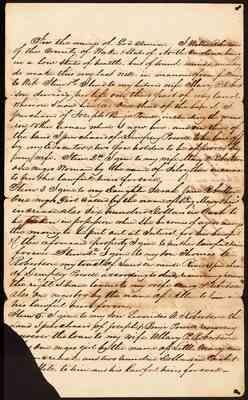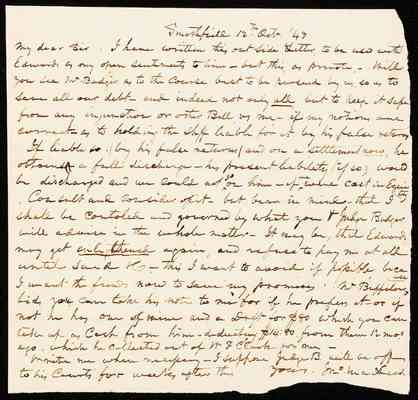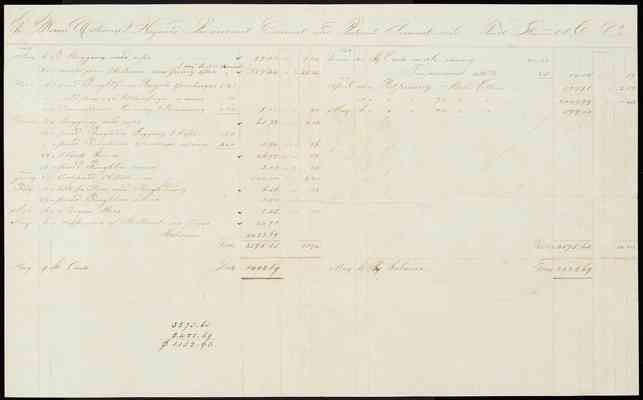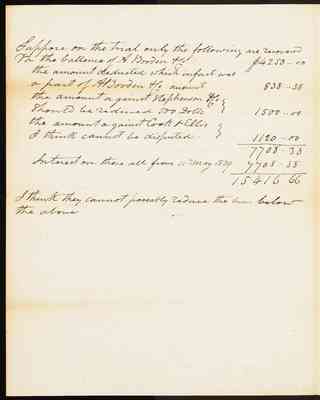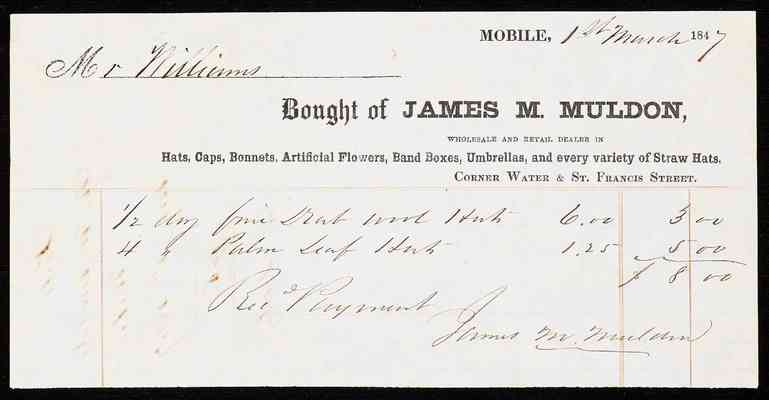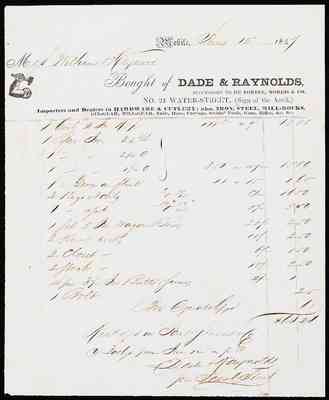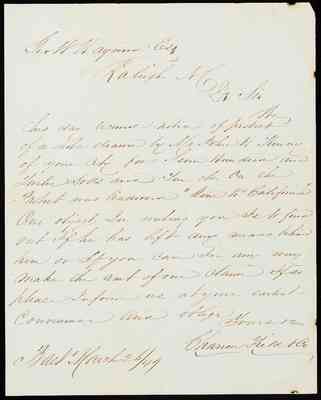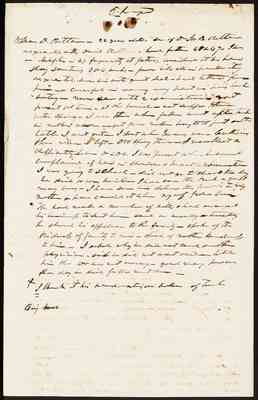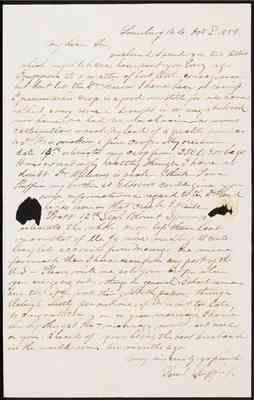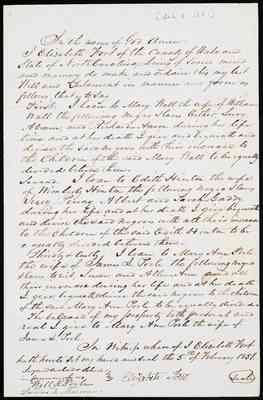About
Works
folder 157: Correspondence, January–May 1839
July 25, the will of Willie Robertson includes Silvy, who was bequeathed to Mary P. Robertson; Big Mary, a girl who was bequeathed to Sarah Jane Robertson; Allen, a boy who was bequeathed to Thomas C. Robertson; Little Mary, a girl who was bequeathed to Leonidas W. Robertson. 26 June 1837, a...
Collaboration is restricted.
folder 170: Correspondence, September–December 1843
Slavery era records include October 25, the will of Lucinda Lanier of Franklin County, N.C., documents that Dick (adult), Bill (adult), H.G. Leigh (male child), Rebecca (child), Amelia (child) were bequeathed to John Nicholson. Each of these individuals, as well as Phill (adult), another...
Collaboration is restricted.
folder 172: Correspondence, April–August 1844
Slavery era materials include: May, will of William Lashley of Wake County, N.C., documents Joe, a child, who was bequeathed to Young Lashley, and six other unnamed enslaved people who were bequeathed to Elizabeth Lashley. Includes letters from E. Burke Haywood attending UNC at Chapel Hill....
Collaboration is restricted.
folder 178: Correspondence, November–December 1845
November, a list of fifty enslaved people (ages provided) who were purchased from a Miss Hinton. Other materials are scattered letters between members of the Scott family. January 3, 13, deed and articles of agreement between John S. and George W. Haywood as to the ownership and operation of...
Collaboration is restricted.
folder 181: Correspondence, January–April 1847
Slavery era materials include: January 1, a receipt indicating Ruffin, a boy enslaved by Alfred Williams, was hired out for the year 1846. Ruffin was to be returned to Williams in Greensborough on 1 January 1847. January 1, a list of 22 enslaved people who had been hired out in Greene...
Collaboration is restricted.
folder 182: Correspondence, May–July 1847
Slavery era materials include: June 20, will of Frances Waddail of Franklin County, N.C., documents Jinny, a woman; Margaret, a girl, who was bequeathed to Martha Brooks; Martha, a girl, was lent to Alice Debnam; Charles, a man, who was bequeathed to James Waddail; and Mill, a woman, and...
Collaboration is restricted.
folder 189: Correspondence, March–May 1849
Slavery era records include: May 18, unnamed enslaved people are mentioned as to be sold "South" in the will of William R. Pool of Wake County, N.C. (folder 189). Other papers are similar to those previously described. Also included are papers relating to the family and descendants of...
Collaboration is restricted.
folder 191: Correspondence, September–October 1849
Slavery era records include: September 12, Isaac, an enslaved man, and other unnamed enslaved people are mentioned in a bill of complaint of Henry W. Perry against James S. Yarbrough, both of Franklin County, N.C. Isaac and the other enslaved people had been conveyed in 1846 by Samuel Perry...
Collaboration is restricted.
folder 195: Correspondence, August–December 1850
Slavery era records include: September 3, will of Josiah Jones of Wake County documents Mary, a girl, who was bequeathed to Freemann Jones; Leak, a girl, who was bequeathed to Rebecca Bunn; Aniky(?), a woman, and her youngest child, Willie, who were bequeathed to Lucy Strickland; Isabel, a...
Collaboration is restricted.
folder 196: Correspondence, January–April 1851
Slavery era records include: 1843 (undated), 25 enslaved people between the ages of ten and fifty years, and 10 enslaved children under the age of ten years are documented without names on a tax list. Enslaved people under the age of ten years and over the age of fifty years were taxed at...
Collaboration is restricted.
